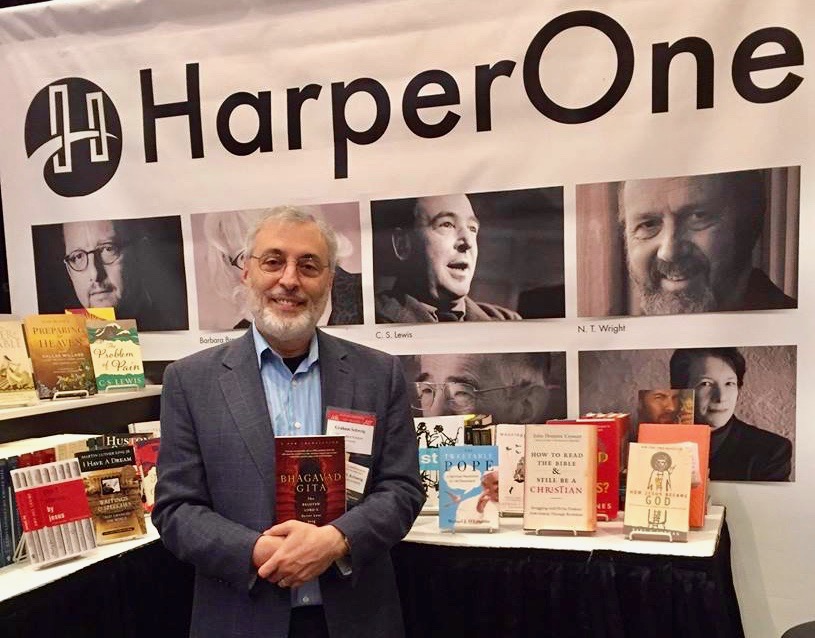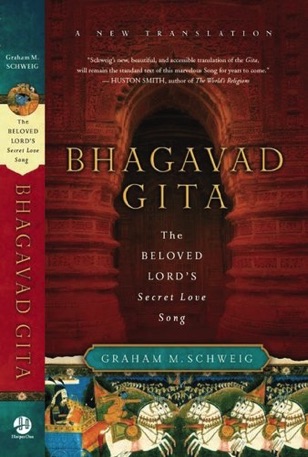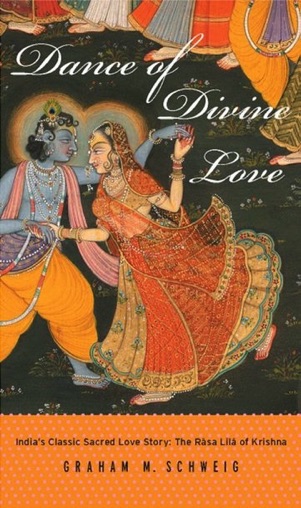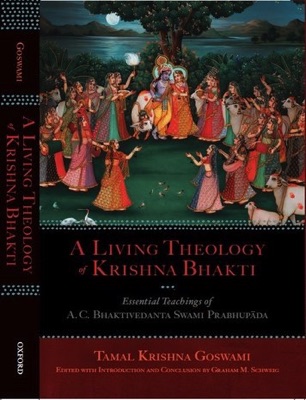Books

BHAGAVAD GĪTĀ
The Beloved Lord’s Secret Love Song
by Graham M. Schweig
Published by Harper Collins / Harper One, 2010
The Bhagavad Gītā is often regarded as the Bible of India.
With a gripping story and deeply compelling message, it is unquestionably one of the most popular sacred texts of Asia and, along with the Bible and the Qur’ān, one of the most important holy scriptures in the world.
Part of an ancient Hindu epic poem, the dialogue of the Bhagavad Gītā takes place on a battlefield, where a war for the possession of a North Indian kingdom is about to ensue between two noble families related by blood. The epic’s hero, young Prince Arjuna, is torn between his duty as a warrior and his revulsion at the thought of his brothers and cousins killing each other over control of the realm. Frozen by this ethical dilemma, he debates the big questions of life and death with the supreme Hindu deity Krishna, cleverly disguised as his charioteer.
By the end of the story, Eastern beliefs about mortality and reincarnation, the vision and practice of yoga, the Indian social order and its responsibilities, family loyalty, spiritual knowledge, and the loftiest pursuits of the human heart are explored in depth. Explaining the very purpose of life and existence, this classic has stood the test of twenty-three centuries. It is presented here in a thoroughly accurate, illuminating, and beautiful translation that is sure to become the standard for our day.
DANCE OF DIVINE LOVE
The Rāsa Līlā of Krishna from the Bhāgavata Purāṇa India’s Classic Sacred Love Story
by Graham M. Schweig
Published by Princeton University Press, 2005
Dance of Divine Love presents India’s classical sacred love story known as the Rasa Lila. It is a dramatic poem about young maidens joining with their ideal beloved to perform the wondrous “circle dance of love”, or Rasa. Its story is an expression of the eternal soul’s loving union with the supreme deity in “divine play”, or Lila. The Rasa Lila is considered the ultimate message of one of India’s most treasured scriptures, the Bhagavat Purana.
The narrator of this story tells us that the highest devotional love for God is attained when hearing or reciting the Rasa Lila. Undeniably, its charming poetic imagery, combined with deeply resonating devotional motifs, expresses to any reader much about the nature of love. Narrated in eloquently rich and flowing Sanskri verse, it has been recognized as one of the most beautiful love poems ever written.
A fascinating study and eloquent translation of the beloved story of the all-attractive god Krishna’s nocturnal dalliances with the cowherder women of Vraja as described in the Bhagavata Purana. . . . Schweig render[s] this Sanskrit classic into elegant English.
Joel Bordeaux, Altar Magazine
This is the most complete presentation of the Rasa Lila, focusing on the text and story itself and looking at it, as it requires, from each of its many viewpoints. The scholarship and teaching quality are first-rate. . . . Schweig’s approach is inclusive, consciously reaching out to all levels of reader/devotee/connoisseur and clearly wishing not to leave anyone behind. . . . [E]veryone interested in Hinduism, literature, and religion should consider buying this book.
James D. Redington, S.J., Journal of Vaishnava Studies
A LIVING THEOLOGY OF KRISHNA BHAKTI
Essential Teachings of A. C. Bhaktivedanta Swami Prabhupāda
by Tamal Krishna Goswami
Edited with Introduction and Conclusion by Graham M. Schweig
Published by Oxford University Press, 2012
A. C. Bhaktivedanta Swami Prabhupāda (1896-1977), founder of the Hare Krishna Movement, traced his lineage to the fifteenth-century Indian saint Sri Chaitanya. He authored more than fifty volumes of English translation and commentaries on Sanskrit and Bengali texts, serving as a medium between these distant authorities and his modern Western readership and using his writings as blueprints for spiritual change and a revolution in consciousness. He had to speak the language of a people vastly disparate from the original recipients of his tradition’s scriptures without compromising fidelity to the tradition.
Tamal Krishna Goswami claims that the social scientific, philosophical, and ‘insider’ forms of investigation previously applied have failed to explain the presence of a powerful interpretative device–a mahāvākya or ‘great utterance’–that governs and pervades Prabhupāda’s ‘living theology’ of devotion on bhakti. For Prabhupāda, the wide range of ‘vedic’ subject matter is governed by the axiomatic truth: Krishna is the Supreme Personality of Godhead.
Goswami’s academic training at the University of Cambridge, his thirty years’ experience as a practitioner and teacher, and his extensive interactions with Prabhupada as both personal secretary and managerial representative, afforded him a unique opportunity to understand and illuminate the theological contribution of Prabhupada. In this work, Goswami proves that the voice of the scholar-practitioner can be intimately connected with his tradition while sustaining a mature critical stance relative to his subject. A Living Theology of Krishna Bhakti includes a critical introduction and conclusion by Graham M. Schweig.


